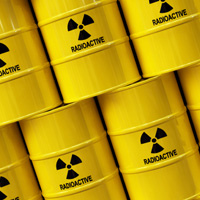-
Grants
17
-
Total Awarded
$8,686,152
-
Years
1984 - 2024
-
Categories
Grants
The Bridging Divides Initiative (BDI) at Princeton University is a nonpartisan initiative working to track and mitigate political violence in the United States. BDI uses data-driven analysis and rapid-response support to empower communities across the country to bring down the baseline level of conflict, protect civic spaces, and break out of the current cycle of conflict – ultimately making progress towards a positive, shared vision of U.S. democracy. This award provides flexible support to BDI.
The mission of Princeton University’s Center for Information Technology Policy (CITP) is to understand and improve the relationship between technology and society. CITP aims to harness Princeton’s expertise in computer science and engineering, policy, the social sciences, and humanities to help governments, institutions, and individuals leverage the benefits of technology while mitigating its potential to do harm. Its work is anchored around three core research areas: (1) platforms and digital infrastructure; (2) data science, AI, and society; and (3) privacy and security. CITP runs a variety of programs to advance these areas of research including fellowships, the CITP Tech Policy clinic that undertakes research to guide policymaking, and the Digital Witness Lab where journalism-trained engineers design software and hardware tools to track the inner workings of social media platforms. In addition, CITP hosts regular seminars and events to discuss pressing technology policy questions. The award provides flexible support to CITP.
The Center for Information Technology Policy (CITP) is an interdisciplinary center at Princeton University that is a nexus of expertise in technology, engineering, public policy and the social sciences. CITP seeks to translate technical expertise into public policy and social impact and to connect and train technology policy experts. Programmatically, it achieves this through a portfolio of varied activities including: 1) interdisciplinary research; 2) translating technological research into information and tools useful for policymakers, advocates and citizens, through public events, open source software, and accessible, written materials, such as policy papers and blog posts; and, 3) the hosting of interdisciplinary conferences and workshops covening academics, advocates, government officials and industry, and hosting visiting faculty, fellows, and postdocs. The grant provides general support to CITP as it deepens its work addressing issues at the intersection of artificial intelligence (AI) and public policy in an effort to help advance AI in the public interest.
Established in 2009 at Princeton University’s Department of Mechanical and Aerospace Engineering, the Nuclear Futures Laboratory (NFL) carries out research on emerging nuclear energy technologies, nuclear nonproliferation, and arms control. This project was selected though a request for proposals competition, co-organized by MacArthur and Carnegie Corporation of New York, entitled Heading Off Nuclear Catastrophe. This award establishes a partnership between NFL and Games for Change (G4C), a non-profit organization that supports the creation and distribution of digital media games for educational and humanitarian purposes. The project employs virtual reality for innovation, collaboration, and public awareness on nuclear arms control and materials security.
Princeton University’s Woodrow Wilson School of Public and International Affairs is a major center of education and research in public and international affairs. Established in 2006 with an award from MacArthur, the International Panel on Fissile Materials (IPFM) is a project of the Woodrow Wilson School. Consisting of technical and policy experts and former diplomats from 18 countries, including China, India, Japan, Pakistan, Russia, the U.K. and the U.S., its mission is to develop and support practical and achievable initiatives to end the production of and secure, consolidate, and reduce stockpiles of highly enriched uranium (HEU) and separated plutonium—the key ingredients in nuclear weapons. Funds for workshops, meetings, research, publications, and policy outreach enable IPFM to continue its mission in support of the 2016 Nuclear Security Summit and beyond.
To research the effects of environmental policy on infants in poor and minority neighborhoods, as part of the How Housing Matters to Families and Communities competitive grant program (over two years).
In support of the project entitled, International Panel on Fissile Materials, whose aim is to reduce global stockpiles of nuclear materials and the locations in which they can be found (over three years).
In support of a dissertation on social organization of suburban poverty as part of the How Housing Matters to Families and Communities competitive grant program (over two years).
To support research on migration and development and the Latin American Migration Project (over three years).
In support of a longitudinal survey of Mexican migrants in the United States (over one year).
In support of the Adversity and Resilience: Effects of Hurricane Katrina on Vulnerable Populations project.
To consolidate scientific research for conservation decision making in Madagascar using the REBIOMA database, in collaboration with the Wildlife Conservation Society (over three years).
For "The Foreign Policy of Revolutionary States."
For institutional fellowships in peace and security studies and related research and support activities.
To support the Center for Energy and Environmental Studies for the project Analytical Basis for an Alternative Nuclear Future (over three years).
For "The Foreign Policy of Revolutionary States."
To support effective and sustained collaboration among researchers from different fields on problems of international security, and for graduate student support (over three years).









